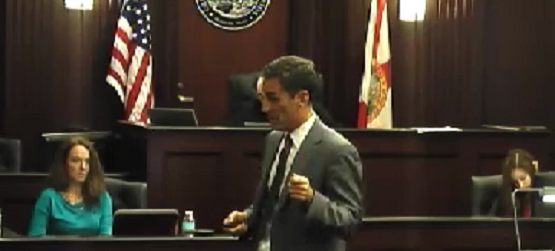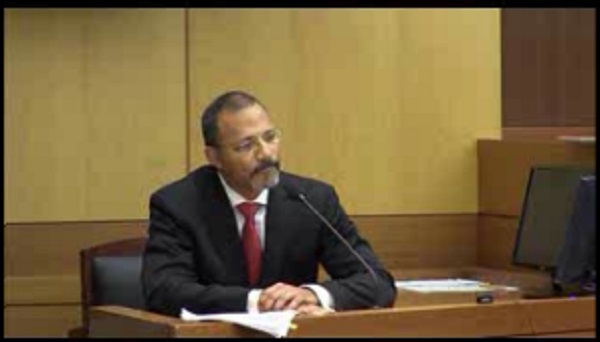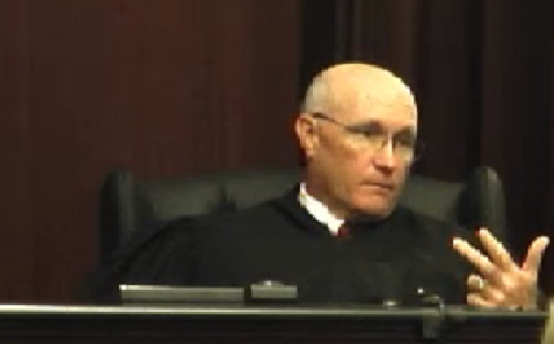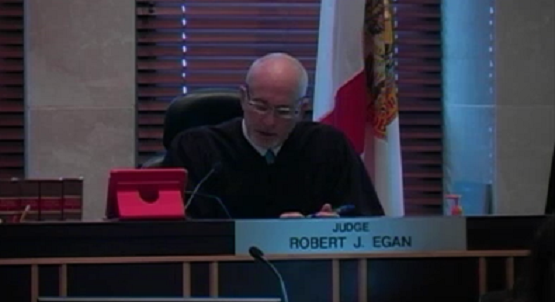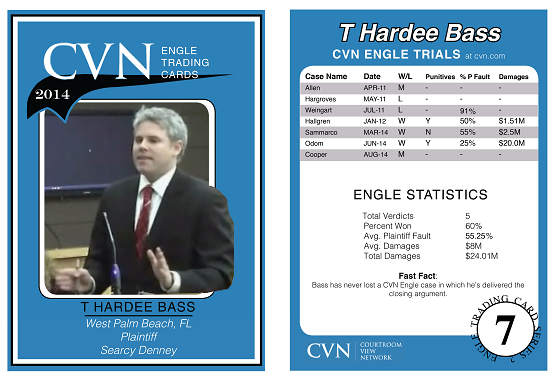Topics: Engle Progeny, Tobacco Litigation, Mass Torts, CVN Florida, Engle Progeny Review, News, Bishop v. R.J. Reynolds, taylor v. R.J. Reynolds, Perrotto v. RJ Reynolds, Webb v. R.J. Reynolds, Schleider v. R.J. Reynolds
Neurosurgeon Prevails in Wrongful Death Suit
Posted by Courtroom View Network on Nov 7, 2014 8:00:00 AM
Dr. Omar Jimenez testifies that he may have been able to save the life of Mark Kravitz if hospital nursing staff had properly notified him of complications Kravitz suffered after surgery Jimenez performed. Jimenez prevailed in a wrongful death suit brought by Kravitz's widow, Chompok Kravitz. Watch a clip of testimony.
Atlanta—Jurors took less than four hours to conclude that a neurosurgeon featured in a national news expose on controversial back surgeries was not liable for the 2004 death of one of his patients at a Wellstar Health Systems hospital. Kravitz and Estate of Mark Kravitz v. Dr. Omar Jimenez.
Chompok Kravitz sued Dr. Omar Jimenez, claiming that the physician's failure to properly treat her husband, Mark Kravitz, following Kravitz's back surgery at Georgia's Wellstar Cobb Hospital ultimately led to Kravitz's death. Jimenez, who worked for Georgia Brain and Spine at the time of the 2004 incident, had his surgical privileges suspended by Wellstar in 2006.
At the conclusion of the three-day trial, the 12-member jury was unanimous in finding that Jimenez was not responsible for Kravitz's death.
The suit attracted widespread attention following Jimenez's inclusion in an April 2014 CBS News story "Tapping Into Controversial Back Surgeries." The article highlighted the fact that a Medicare database listed Jimenez as performing 325 spinal fusion surgeries—the same type of procedure Kravitz underwent—the third highest number in the nation.
Although Mark Kravitz's April 2004 surgery was initially deemed a success, he suffered post-operative complications soon after its conclusion, and was moved to an intensive care unit, where he suffered fatal respiratory arrest.
The case turned on the adequacy of Jimenez's treatment. Plaintiff's attorneys argued that Jimenez failed to respond properly to Kravitz's worsening condition, which included neck swelling and shortness of breath prior to his death. However, Jimenez testified that nursing staff did not adequately notify him of the severity of Kravitz's symptoms. "I put (Kravitz) in ICU, to be monitored by the nurses, to call me every 30 minutes, if there was a change in the patient's breathing," Jimenez said, "and I was not called."
Wellstar, which had been named in the suit, settled for a confidential sum in 2007.
Topics: Negligence, Medical Malpractice, Georgia
Jury Awards Nearly $4.5 Million Plus Potential Punitives in Engle Progeny Suit Against RJR
Posted by Arlin Crisco on Nov 6, 2014 2:38:00 PM
Topics: Negligence, Engle Progeny, Tobacco Litigation, Mass Torts, CVN Florida, News, taylor v. R.J. Reynolds
Topics: Negligence, Engle Progeny, Tobacco Litigation, Mass Torts, CVN Florida, News, Bishop v. R.J. Reynolds
Each Tuesday we issue a new Engle trading card featuring an attorney, trial, or firm from Florida’s Engle progeny tobacco cases. Our exclusive cards provide a light-hearted way to track important statistics throughout this landmark tobacco litigation.
Card #7: T. Hardee Bass
Topics: Engle Litigation Trading Cards, Engle Progeny, Tobacco Litigation, CVN Florida


